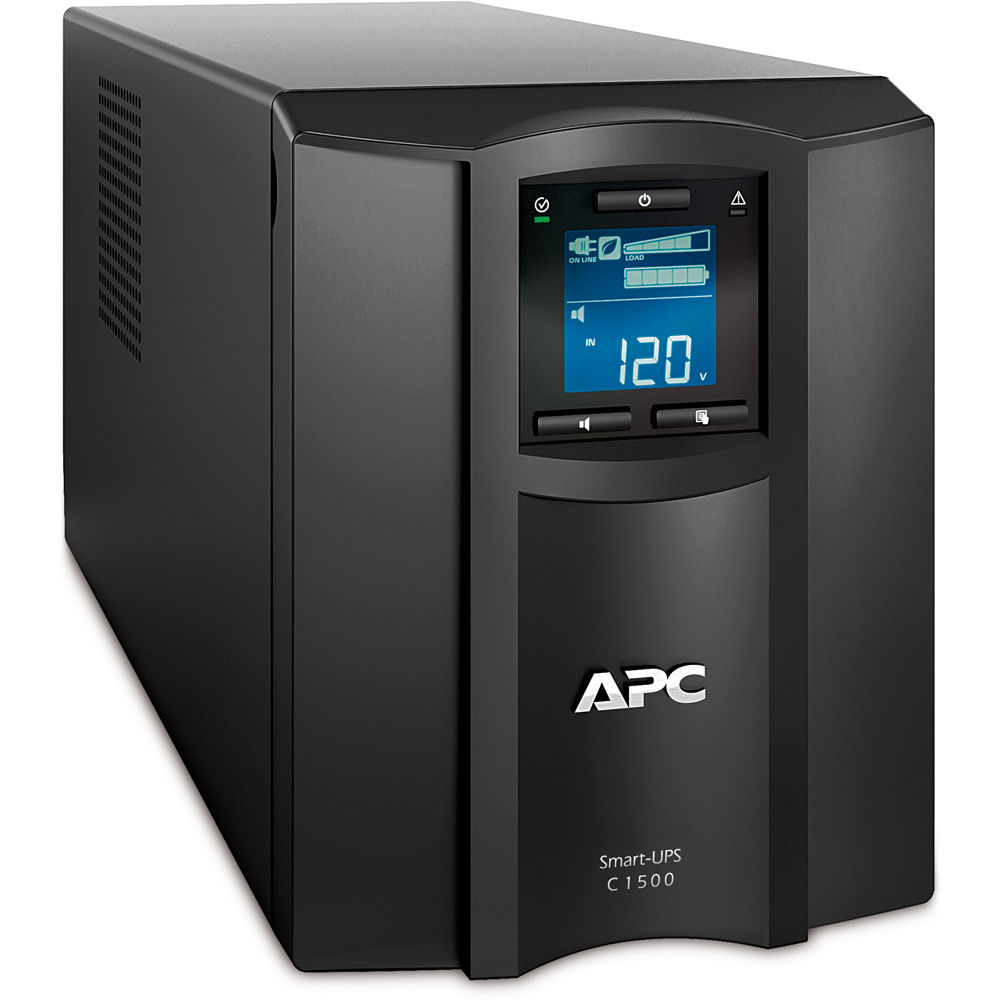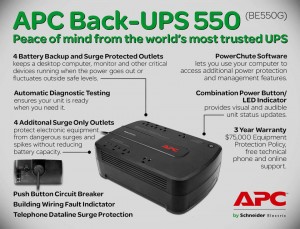What to consider when purchasing a UPS
One of the most important parts of a computer setup is a UPS (an Uninterruptible Power Supply). There’s a lot of great reasons to own one, but one of the major ones is that it could really save your skin by keeping your components alive in the event of a bad storm, power surges and so on. Don’t just go out and grab any UPS off the store shelf, though. There’s a few things you should consider before making your purchase. We’ve highlighted some of the major aspects below.
Equipment
One of the most important things to consider before purchasing a UPS is how much equipment you plan to plug into the machine. Sure, you have your home computer and monitor. But, is there anything else? Making sure you have enough UPS outlets for networking equipment might be good, too (e.g. your router and modem). Some people will only need the couple of outlets that come standard on UPS’, however, if you have a larger home office setup (maybe even run a server out of your home), you could potentially need more.
With most UPS’, 2-3 outlets come standard, but depending on your equipment needs, you can get up to as much as 8 (or more than that, depending on how much UPS you buy).
Power needs
You’ll also need to look at what your power needs. How much equipment do you have and how much power do they all need together? If your equipment takes up more power than the UPS can generate, the hardware can’t be powered by the UPS. Think of it like your computer’s power supply — if the wattage isn’t high enough to handle all the hardware in the computer, the computer isn’t going to work.
It’s fairly easy to find out how much power you’ll need. Usually your best bet is to use a wattmeter to measure the wattage of your components and then add them up to get the total wattage of your computer. Of course, if you have other equipment you want to hook up — monitors, routers, other wireless equipment and etc — you’ll need to factor in their power usage, too.
How long should the UPS last on battery?
That’s another question to ask yourself when picking out a UPS — how long do you want it to last on battery? Your most basic UPS is going to give you just enough time to save your work and shut down all of your equipment in a safe manner. But, if you want to keep working through a minor power outage or blackout, some UPS’ will give you up to an hour, depending on how much equipment you’re powering.
Warranties
Another area to look at is the warranty. This can be one of the most important aspects of a UPS, as UPS’ are used to ensure the safety and protection of thousands of dollars worth of equipment. That said, a UPS worth its salt will offer some sort of warranty to give you peace of mind. For example, APC — a brand by Schneider Electric — offers Lifetime Connect Equipment warranties, usually up to $75,000 or more. It gives you some peace of mind that, if your UPS should fail to protect your equipment, you could be able to recover your losses through a warranty like that.
Closing
These are some of the primary areas to consider when purchasing a UPS. Really, it’s all about seeing what you have and then finding a UPS that’ll fit your power needs accordingly. If you’re still not 100% sure what you’re planning on shopping for, APC offers a handy UPS Selector tool over on its website to help you find the correct APC for your needs, whether it’s being used for a home office or something as large as a data center. Whatever you’re looking for, it’s worth investing in a UPS to ensure you won’t have to be replacing any equipment from blackouts or power surges anytime soon.


















